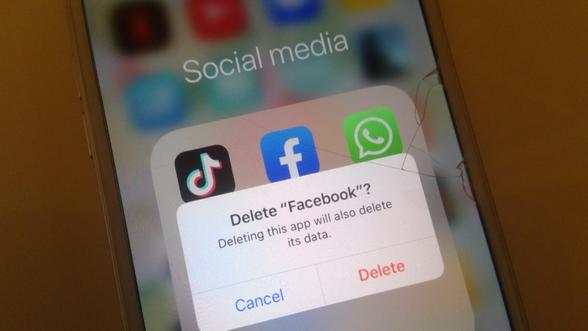JOINT MEDIA RELEASE WITH QUEENSLAND FAMILY & CHILD COMMISSION
Queensland’s Family and Child Commission and Mental Health Commission have united to urge parents and carers to be vigilant about their children’s social media activity.
Queensland Family and Child Commission (QFCC) Principal Commissioner Cheryl Vardon and Queensland Mental Health Commissioner Ivan Frkovic said it was important to initiate conversations with young people about distressing, violent and abusive content on social media platforms.
“Harmful content appearing on social media channels is of course concerning and unfortunately when removing this type of material there is no guarantee that it will not re-emerge,” Ms Vardon said.
“The prevalence of horrific and harmful content available online is a challenge that calls for careful monitoring and frank discussions.
“We know harmful content is often disguised as harmless videos or imagery, such as a video that starts with cute kittens and escalates to extreme self-harm.
“We must take this not just as a warning, but as a call to action to build on our digital competencies and prepare ourselves for conversations with young people to protect them from harm.”
Mr Frkovic said parents and carers needed to be aware of the channels and material their children are accessing, and to start difficult conversations to discuss context and appropriateness,” Mr Frkovic said.
“Many parents and carers find the evolving social media landscape to be confusing and daunting, but we all need to build on our digital competencies and equip ourselves for conversations to protect young people from harm.
“Harmful content online includes video of suicides and self-harm, groups promoting unhealthy body images, violence including abusive pornography, and encouragement to take extreme risks for video views,”
“The issue extends beyond obviously inappropriate content, as social media also portrays unrealistic images of beauty and perfect lifestyles – setting young people up for feelings of inadequacy and dissatisfaction.”
Ms Vardon and Mr Frkovic reinforced advice from Australian eSafety Commissioner Julie Inman-Grant, that parents, carers and educators should not draw young people’s attention to specific harmful content as this could pique curiosity.
eSafety has developed tips for parents to help limit young people’s exposure to harmful content online:
- Engage in your child’s online activities – ask what apps, sites and games they’re using and make sure they’re age-appropriate
- Use parental controls on devices to help limit what your child is exposed to
- Help them report and block upsetting content they see on social media sites or apps
- Let them know they can come to you about anything upsetting they see online
- Head to www.esafety.gov.au to find out the latest advice on apps, social media and online safety issues.
Find support services in your area at www.oneplace.org.au.
If you are in immediate danger call 000
The following services offer counselling and support.
- Lifeline 13 11 14
- Beyond Blue 1300 22 4636
- Kids Helpline 1800 55 1800
- MensLine Australia 1300 789 978
Media: Queensland Family and Child Commission, Kirby Orr, Kirby.orr@qfcc.qld.gov.au, 0434 683 265; Queensland Mental Health Commission, Carolyn Varley, carolyn.varley@qmhc.qld.gov.au, 0477 385 121.

